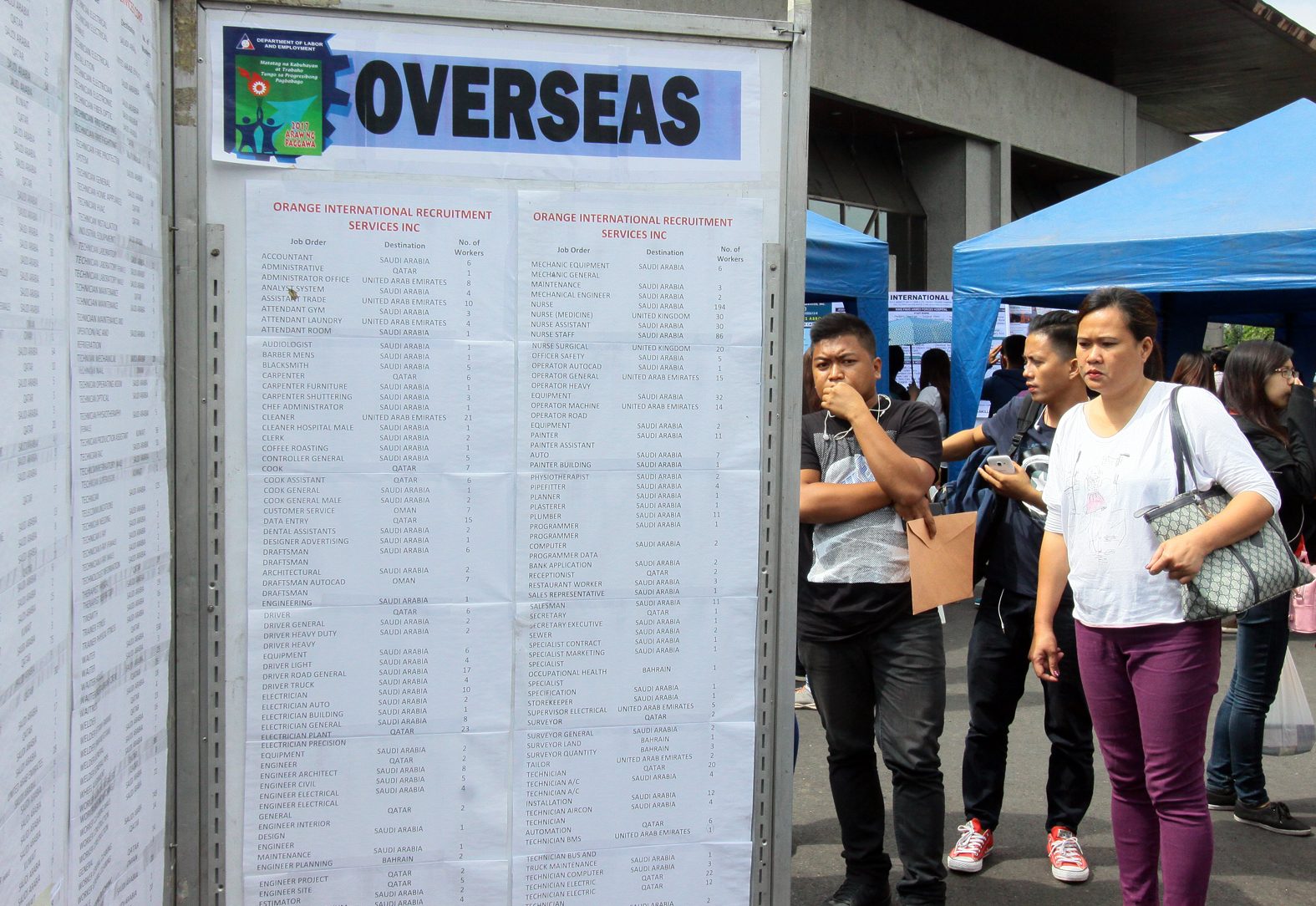SUMMARY
This is AI generated summarization, which may have errors. For context, always refer to the full article.

MANILA, Philippines – The Philippines and the United Arab Emirates vowed to strengthen measures to protect the welfare of the Filipino migrant workers.
Department of Labor and Employment (DOLE) Secretary Silvestre Bello III and his counterpart, United Arab Emirates Human Resources Minister Saqr Ghobash signed a memorandum of understanding (MOU) calling for their countries’ close coordination in the employment cycle of overseas Filipino workers (OFWs).
The MOU establishes cooperation between the two countries in terms of combatting human trafficking and regulating recruitment agencies to ensure fair recruitment practices.
“Transparency to address contract substitution, among others, will be addressed by this agreement,” Bello said in a statement released Wednesday, September 27.
“With the MOU, OFWs in the UAE will have stronger protection, and the firm assurance from both governments that protection will be the first order of the day,” he said.
Under the agreement, the Philippines should ensure that OFWs deployed to UAE are briefed of the laws, policies, norms and culture of the destination country. The Philippine government should also make sure that the workers’ entry to the UAE is legal.
“This includes effective verification of job offers and contracts, and assistance to OFWs in distress by the embassy, consulate, and the Philippine Overseas Labor Office (POLO),” according to a DOLE news advisory.
The UAE, on the other hand, must properly implement employment contracts to uphold OFWs’ rights in compliance with its Labor Code and the new law on domestic workers.
There are more than 600,000 Filipinos in UAE. More than 100,000 of them are household service workers.
The recently signed document also provides the Protocol on Domestic Workers as specified in the new law.
These protocol ensures the rights of the workers to:
- Treatment that preserves personal dignity and physical safety
- Due payment and non-withholding of wages
- 12 hours of daily rest
- One full day of weekly rest
- Provision of decent accommodation and medical treatment
- Retention by the worker of identity documents such as passports
- Non-payment of costs for repatriation
– Rappler.com
Add a comment
How does this make you feel?
There are no comments yet. Add your comment to start the conversation.